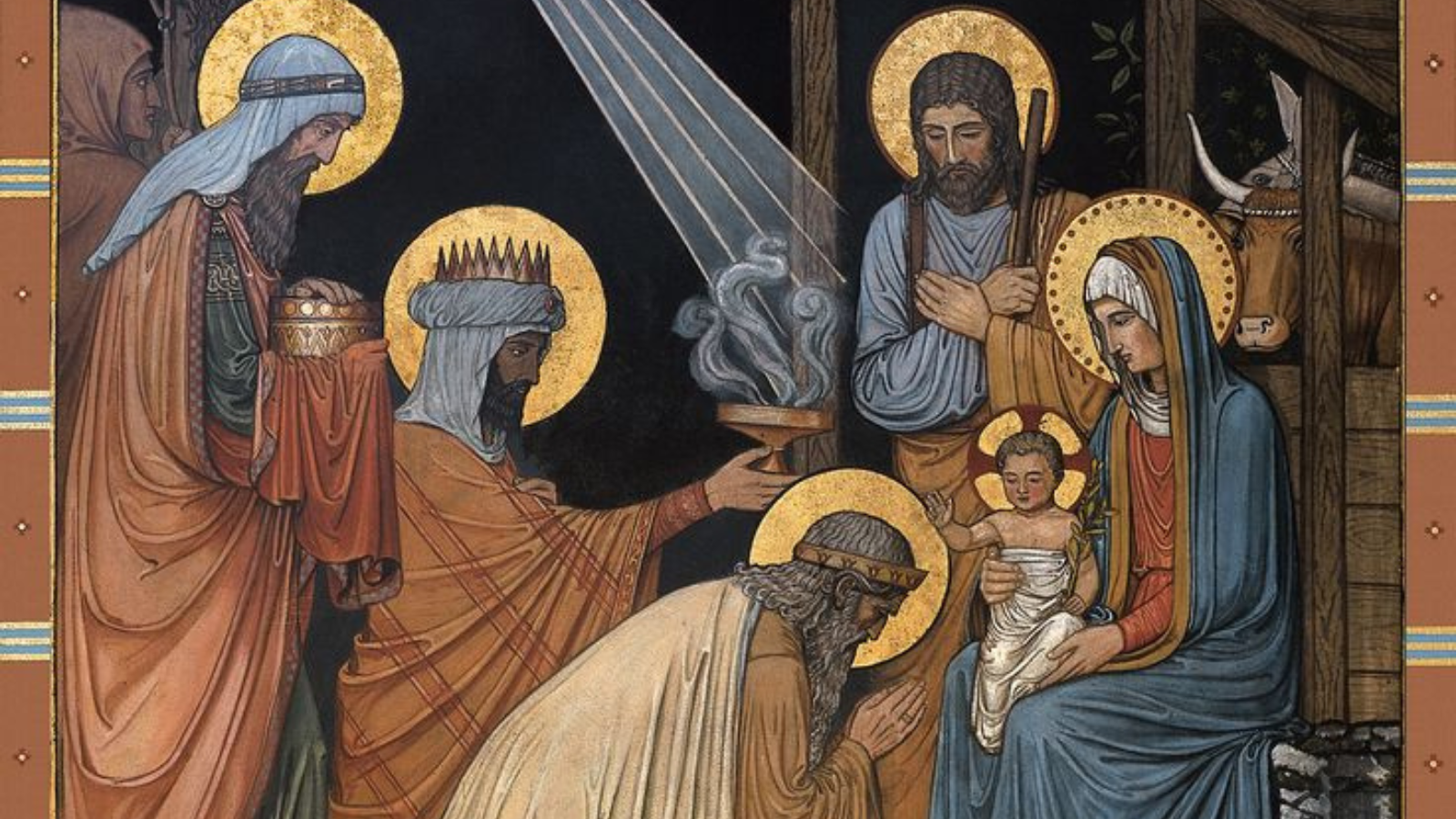*During this season of Epiphanytide, we are going to spend the next three Saturdays looking at the story of the Magi, specifically highlighting the main characters: Jesus, Herod, & the Wise Men. They all have a lot to say to us today about power, status, politics, and the Christian life.

Today is Epiphany! Epiphany is the season of the liturgical year when we mark the manifestation of God to us in Jesus. If Christmas is about celebrating the coming of Jesus the Christchild, Epiphany is about the revelation of Jesus the Godman. Our English word comes from the Greek epiphanea, it means “appearing, or the appearance”, or “manifestation”. We use the word commonly to speak of simple things we come in an instant to recognize, something that was always there but we just didn’t recognize it, the proverbial lightbulb going on over our head.
Sometimes having an epiphany can be pretty mundane, like this guy who tells the story of how he learned that he actually hated to love coffee:
“While navigating the two miles from Dunkin’ Donuts to work, somehow I managed to spill my large, scalding hot coffee two separate times. Among the items soaked by my over sized cup of liquid-drug are as follows: This week’s edition of TIME magazine , One of my favorite polo shirts , my ear buds, an adapter to plug my iPhone into my car speakers , A 600 page paperback book I’m reading , My right hand, and of course, my passenger seat.”
His epiphany in the mundane sense was that his love of coffee wasn’t always what it was cracked up to be! The deeper and more technical sense of the word Epiphany is the one that we will look at over the next few weeks.
Technically an Epiphany is “a visible manifestation of a hidden deity either in a personal appearance or by some powerful deed…in the specifically Christian sense, Epiphany celebrates the revelation of Christ on earth”. That’s what we’re marking when around January 6 the church, or we as individuals, celebrate the season of the church year called Epiphany…Christ has been revealed on earth, God has made an appearance. God has manifested himself in Christ.
The operative word for Epiphany is Revelation. The candle has been lit. The light has been turned on. Dawn has broken.
Each year we reflect on the visit to the infant Jesus by the magi, the wise men (Matthew 2.1-12) . It’s a powerful story. They, who did not believe in Yahweh, following Yahweh’s sign across the desert. They, who were not expecting a Messiah, seeking him. They, expecting a new king would be born in a palace, being willing to go another nine miles (after hundreds traveled already) from Herod’s halls in Jerusalem to a stable in some backwater little town called Bethlehem. They, who were not Jews, taking the prophecies about where the Messiah would be born more soberly than the Jewish scribes themselves. The scribes, reading the prophecy, said the Messiah would come from Bethlehem. The scribes rolled up the scroll and sat tight. The magi got back on their camels, and found what they had traveled so long for, “And going into the house they saw the child with Mary his mother, and they fell down and worshiped him. Then, opening their treasures, they offered him gifts, gold and frankincense and myrrh. (Mt. 2.11)
It is a beautiful, tender, true, and powerful story. Yet there is another part of this story, not beautiful but terrible, not tender but violent, and also powerful, and all too true, and very important not to lose sight of. It is the story of the Slaughter of the Innocents, King Herod sending off death squads to kill all male children in Bethlehem and the surrounding region under the age of 2.
It’s part of the same chapter in Matthew 2, and this story too belongs in Epiphany. The Light had come into the world, and the Darkness sought to destroy it, to stamp it out, to slay it. If the images of the Epiphany story are light and dark, a color that also belongs in the story is red. For all of God’s redemptive work in the world, there is Evil which seeks to thwart it every turn. Revelation always prompts Reprisal:
- The biggest story on our planet is the battle between Good and Evil, between God and Satan, and this plays out all throughout Scripture and down through history and is raging today.
- It is a pattern as old as the first story from the Scripture, for in the garden–Revelation–there came a snake–Reprisal.
- When God’s people were saved by going to Egypt-Revelation–they ultimately became slaves there–Reprisal.
- When God’s people inherited their promised land–Revelation–they were tempted to worship other gods–Reprisal, and they did, and were exiled.
- When God revealed himself through Jesus the Man–Revelation–he was crucified at the hands of men–Reprisal.
- When God was revealing himself through the preaching of the Gospel by of the apostles and the early church–Revelation–they were persecuted and martyred–Reprisal.
- Think about where the church has grown the most in the last 100 hundred years-Africa and China–Revelation. And where is some of the most persecution of Christians now? Africa and China. Reprisal.
- How many of us have experienced a season of great growth in God–Revelation– only to be hit with a series of hardships that could be best be explained as spiritual attack? Reprisal.
In the middle of this universal pattern of Revelation and Reprisal is the story of the wise men in Matthew, a story with three main characters. God revealed to the 1) wise men that 2) Jesus was born, and 3) King Herod reacted.
Next Saturday we journey further into this story as we take a closer look at two very different types of Kings, Jesus & Herod, and ponder our response to this Epiphany season.
